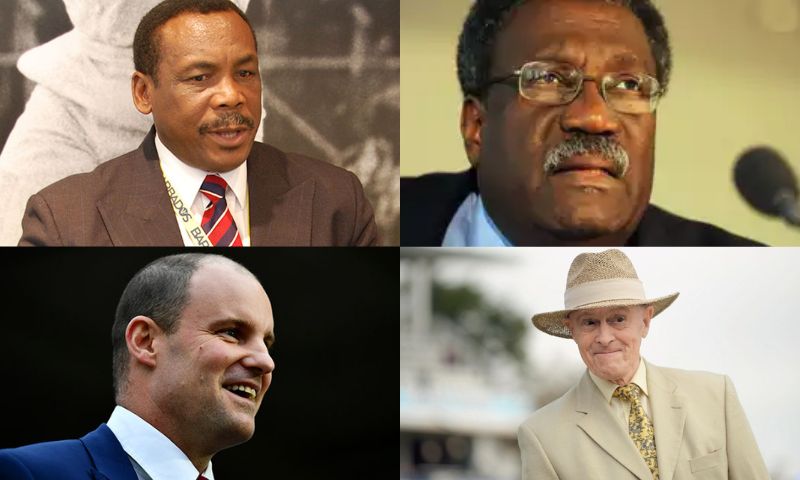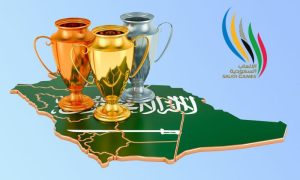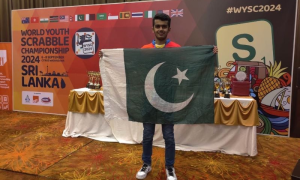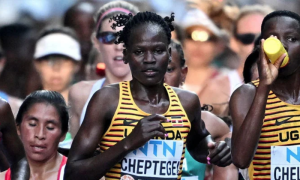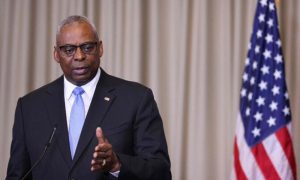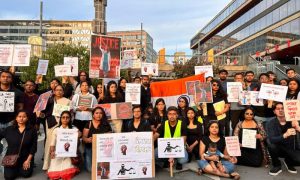ISLAMABAD: The concept of the “Sir” title in cricket is a topic of considerable charm.
In the world of cricket, we frequently encounter the honorific “Sir” preceding the names of certain iconic players. Renowned figures like Sir Don Bradman, Sir Viv Richards, and Sir Garfield Sobers proudly bore this title.
Nevertheless, it is important to note that not all cricket legends have been bestowed with this distinguished appellation. Players of the caliber of Sachin Tendulkar, Muttiah Muralitharan, Wasim Akram, Jack Kallis, and MS Dhoni, while unquestionably elite, have not been conferred the “Sir” title in cricket.
Interestingly, the “Sir” title has not been confined solely to the most celebrated cricketers. Some lesser-known players have also received this honour. This raises a series of intriguing questions: What is the narrative behind the “Sir” title in cricket? Why has it been selectively granted to only a handful of players? What exceptional attributes and achievements merit this prestigious designation?
To embark on a journey of discovery into the origins and criteria for bestowing the “Sir” title in the realm of cricket is a fascinating pursuit.
Sir title in cricket history
The title of “Sir” originated in England, the birthplace of cricket, and was granted to numerous individuals throughout the British Empire by their monarch. In recognition of their dedication to the kingdom, the Queen of England would bestow the title of “Sir” upon deserving individuals, a distinction known as a Knighthood.
The British Queen extended this Knighthood to individuals who had exemplified exceptional service to their nation, and the honorific “Sir” would be prefixed to their names. As a result, the “Sir” title was reserved for a select group of distinguished individuals. Consequently, the Queen of England bestowed this prestigious honour of “Sir” to those who had made significant contributions to their country in the fields of the arts, sports, and public service. In the context of cricket, some players who lived under British rule since 1926 were granted the title of “Sir.”
Nonetheless, during that era, the majority of nations were governed by the British. The very countries we currently refer to as Commonwealth Nations were once subject to British colonial rule. Consequently, while the tradition of knighthood in cricket originated in England, the title of “Sir” was also conferred upon cricketers hailing from other nations.
Criteria to get Sir Title in cricket
Are there specific criteria for awarding the Sir title in cricket? Such criteria do not exist. In the past, England used to select some of the finest players in the sport, officially knighting them and conferring the title of Sir. Consequently, since 1926, a total of 29 cricketers have received the ‘Sir’ title in cricket. Out of these 29 individuals, 14 hailed from England, 13 from the West Indies, one from Australia, and one from New Zealand.
It’s worth noting that while some cricketers were honoured with the ‘Sir’ title, a few others received the title of Lord, typically based on their names. Among the 27 players on this list who were knighted, only two were granted the title of Lord.
List of cricketers who got ‘Sir’ title
- Sir Francis Eden Lacey – 1926 (England)
- Sir Frederick Charles – 1929 (England)
- Sir Plum Warner – 1937 (England)
- Sir Donald George Bradman – 1949 (Australia)
- Sir Jack Hobbs – 1953 (England)
- Sir Shrimp Leveson Gower – 1953 (England)
- Sir Leonard Len Hutton – 1956 (England)
- Sir Frank Mortimer Maglinne Worrell – 1964 (West Indies)
- Sir John Frederick Neville Cardus – 1967 (England)
- Sir Garry Sobers – 1975 (West Indies)
- Sir Gubby Allen – 1986 (England)
- Sir Richard John Hadlee – 1990 (New Zealand)
- The Lord Cowdrey of Tonbridge – 1992 (England)
- Sir Clyde Leopold Walcott – 1993 (West Indies)
- Sir Everton de Courcy Weekes – 1995 (West Indies)
- Sir Alec Victor Bedser – 1996 (England)
- Sir Conrad Cleophas Hunte – 1998 (West Indies)
- Sir Isaac Vivian Alexander Richards – 1999 (West Indies)
- The Lord Botham of Ravensworth – 2007 (England)
- Sir Wesley Winfield Hall – 2012 (West Indies)
- Sir Curtly Elconn Lynwall Ambrose – 2014 (West Indies)
- Sir Andy Roberts- 2014 (West Indies)
- Sir Richie Richardson – 2014 (West Indies)
- Sir Charles Christopher Griffith – 2017 (West Indies)
- Sir Alastair Nathan Cook – 2019 (England)
- Sir Geoffrey Boycott – 2019 (England)
- Sir Andrew John Strauss – 2019 (England)
- Sir Clive Hubert Lloyd – 2020 (West Indies)
- Sir Cuthbert Gordon Greenidge – 2020 (West Indies)









